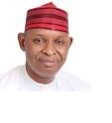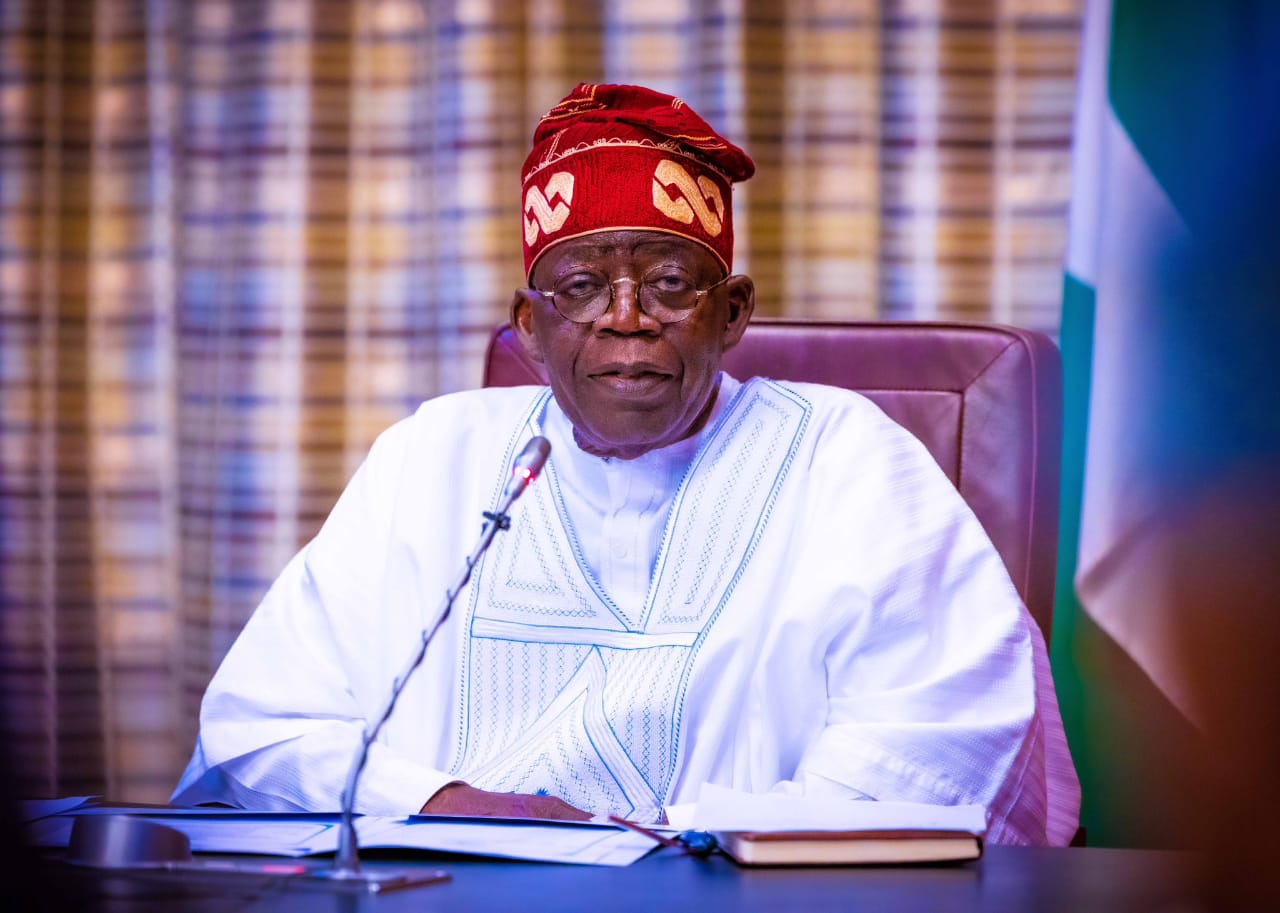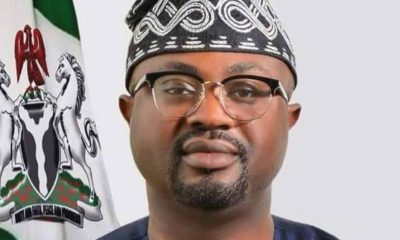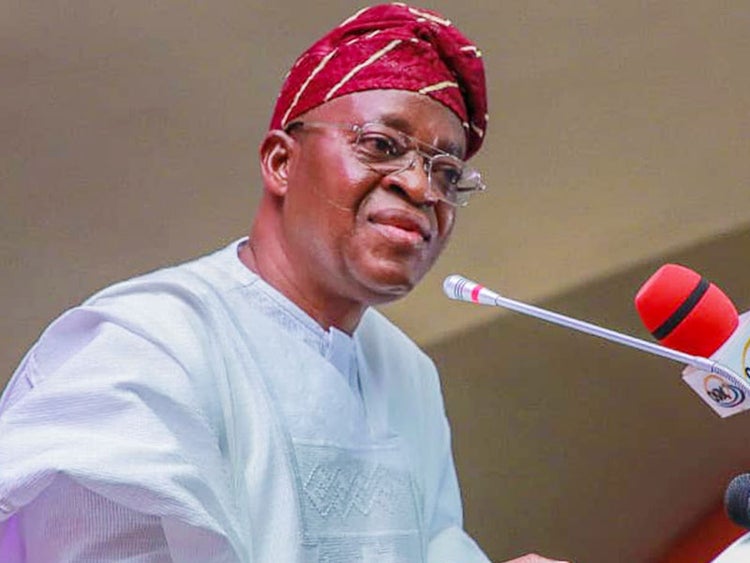POLITICS
Reps Query Abandonment of Skills Acquisition Centre Project in Akwa Ibom

By Ubong Ukpong, Abuja
The House of Representatives Committee on Niger Delta Ministry has queried the contractors for abandoning the skills acquisition center project at Iwuo Achang, Ibeno Local Government Area of Akwa Ibom State.
Chairman of the Committee, Rep.
Eugene Dibiagwu, issued the query at an investigative hearing on the abandoned Skills Acquisition Center.He said that the lack of commitment by the contractors had made them part of the problem Nigeria is facing over abandoned projects.
He added that it was ridiculous that the project was yet to be completed after being paid 85 percent of the contract sum.
“As a contractor that has been paid up to 85 percent, you were supposed to have completed that project; you know the reason why you have not; we will not allow the project to die that way.
“We understand the situation we found ourselves in in the country economically regarding the cost of materials.
“We will engage the ministry of Niger Delta so that they will know whether to consider further valuation for your request for additional money.”
He expressed shock that part of the fence built by the contractors had broken, saying the committee would unravel whether the fence the contractor built that fell was their fault or of a natural cause.
He, however, charged the contractor to do everything possible to complete the project, adding that the committee would not join issues with the contractor until the project was completed.
The committee said that if the skill acquisition center must work with all the necessary facilities to make it functional, it would require an additional N2 billion from the N4.2 billion earlier quoted for the project.
“We are looking at an additional 2 billion naira, which will bring the total project to 6.2 billion naira, having committed 4 2 billion naira initially.
“And even if we commit 6.2 billion naira, the center will not still work considering what is left to be done. That center cannot train one person even with 6.2 billion naira.
The committee added that this is because the center would accommodate training workshops, train personnel to man the center, and also equip the training center to work.
It would be recalled that the House, on Nov. 23, 2023, deliberated on a motion titled “Need to Complete the Construction of the Skill Acquisition Center at Iwuo Achang, Ibeno Local Government Area of Akwa Ibom State”.
The House had urged the Federal Ministry of Niger Delta Affairs to ensure completion of the project within the 2024 fiscal year and mandated the Committee on Niger Delta Ministry to ensure compliance.
However, the Chairman stated that the contract for the center was awarded on March 15, 2010 by the Federal Ministry of Niger Delta Affairs to three companies.
He stated that the project had reached about 85 percent completion 12 years ago but was abandoned due to an unexpected increase in the price of goods.
This, he said, left the property vandalised and in deplorable condition.
The contractors who appeared before the committee include Stegis International Agency Nigeria Ltd., a civil construction building, and Enarosol Nigeria Ltd., a landscaping and perimeter fencing company.
Others include Y. S. Associates, Electrical and Mechanical Works.
The contractor who tried albeit unsuccessful to defend their actions, were requested to appear with copies of the contract agreement, interim performance certificates, and any other relevant documents relating to the project.
POLITICS
From the Senate Prism, a Year after Inauguration

By Eze Okechukwu, Abuja
The 10th National Assembly precisely turned one two days ago. Its first anniversary was almost coincident with the National Democracy Day, which Nigerians, regardless of our faith, ideology or nationality, celebrated on Wednesday, June 12, 2024. This, again, reminds us all of the significance of 25-year unbroken democratic rule, the supreme sacrifice we offered to secure it over three decades ago, our collective resolve to consciously nurture it and the centrality of the Parliament to the growth of representative democracy.
In the last 366 days, the 10th Senate has been strategically collaborating with key public institutions, especially the Executive Arm, to defend our core interest as a federation; ensure macroeconomic stability; promote internal cohesion as well as foster unity among ethnic nationalities that constitute our dear Nation.
Like never before, we have been utterly committed to this national assignment to position our Nation not just for more notable regional and sub-regional roles, but also for global leadership.Driven by this ambitious national aspiration convincingly scribbled in our revised legislative agenda, the Senate has adopted a strategic partnership approach aimed at building resilient synergy with other arms of government and nurturing a competitive, functional and viable federation that works for all. Evident in all our parliamentary engagements, this has been our preoccupation since the inauguration of the 10th Senate as the foremost institution of representative democracy.
For instance, as of June 11, 2024, our records revealed that at least 477 bills were initiated since the 10th Senate kicked off its activities precisely on June 13, 2023. Of this figure, only 25 bills were fully passed into law while others are currently at different stages before the Senate. Comparatively, this figure only accounts for 5.24% of the entire bills introduced within the timeframe.
Many people may measure our performance based on the number of bills that were fully passed into law. Different reasons that account for the low number of fully enacted legislations. This can be ascribed mainly to other issues of highly fundamental national priority that occupied the attention of the Senate. Put differently, it is purely due to the imperatives of attending to other obligations as required by the Constitution of the Federal Republic of Nigeria, 1999.
Aside the 25 fully enacted legislations, no fewer than 275 bills (57.65%) were read first time within the timeframe, about 135 (28.32%) awaiting first reading; 45 (9.43%) awaiting the second reading; 43 (9.02%) currently at the committee stage and three bills (0.63%) were refused on different grounds. While only 13 (2.73%) of the total bills originated from the executive arm, 464 (97.27%) are private member bills.
Apart from the bills, the Senate arrived at 115 resolutions, which are far-reaching in consequence; profound in their significance to our economic development and strategic to the cohesion, growth and stability of our Nation. Each of these resolutions arose from motions of national importance, which different Distinguished Senators sponsored after due diligence was conducted.
Also, within the timeframe, the Senate received and treated petitions from members of the public on diverse matters of grave concern. Despite time constraints, 50 of the public petitions were successfully and satisfactorily resolved. The Senate equally screened and confirmed 215 nominees for different political offices at the request of the President and Commander-in-Chief of the Armed Forces, President Bola Ahmed Tinubu and in accordance with Section 147 (2-6) of the 1999 Constitution and other Acts of the National Assembly.
Among others, the confirmations include key appointments into the Federal Executive Council, Board of the Central Bank of Nigeria and the leadership of the Nigeria Armed Forces, Nigeria Police Force, Nigerian Immigration Service, Nigeria Customs Service, Economic and Financial Crimes Commission and Independent Corrupt Practices and Other Related Offences Commission.
The confirmation is key to our national development. It no doubt sped up the process of forming or constituting the national government at a very critical time when our domestic economy was struggling to stay afloat; national security under threats and internal cohesion was seriously gasping for fresh breath. Already, the first year has passed by.And we have decisively addressed issues of strategic national interest with utmost priority.
From our observation so far, we are confident Nigeria is now more stable and the future of our Nation looks more promising than anytime in our recent history. As people of collective purpose, however, we are under obligations to support our governments, whether at the national or sub-national level, to build a resilient economy and an equitable federation that supports the aspiration of all its constituents.
As we embark upon the journey into a brighter, greater and more glorious future, we will devote much of our time to developing legal frameworks that will further stabilise our fiscal and monetary spaces; that will prioritise security of lives and strategic assets; that will deescalate consumer price index, especially food inflation and that will engender a more functional governance structure.
Aside from the ongoing review of the 1999 Constitution, the Senate has initiated diverse processes with a clear and well-defined mandate. And the processes are designed to create, develop and evolve a more efficient, responsive and viable governance structure, whether with respect to the economy or security, politics or security, science or technology, agriculture or education.
JUDICIARY
Emirship tussle: Court rule against Kano govt, others challenging jurisdiction

The Federal High Court sitting in Kano has on Thursday, ruled against Kano State government and others challenging the jurisdiction of the court to entertain the issue of fundamental human rights instituted by a Kano traditional holder, Aminu Babba Dan’Agundi in connection with the Emirship tussle.
Recall that the applicant, who is the traditional title holder of Sarkin Dawaki Babba of Kano emirate, Aminu Babba Dan’Agundi had approached the court seeking for enforcement of his fundamental human rights claimed to have been violated by government action in the Emirship tussle.
The respondents in the suit are Kano State Government as 1st respondent, Kano State House of Assembly (2nd), Speaker of Kano State House of Assembly (3rd), Attorney General of Kano State (4th), Kano Commissioner of Police (5th), Inspector General of Police, IGP (6th), NSCDC and DSS as 7th and 8th respondents respectively.
Delivering the ruling on jurisdiction on Thursday, the presiding judge, Justice Abdullahi M. Liman, ruled that the court has jurisdiction to entertain the matter concerning the applicant’s fundamental human rights.
Justice Liman gave the ruling relying on Section 42 sub-section 1 and Section 315 of the 1999 constitution as amended.
However, reacting to the ruling, the Counsel to the 2nd and 3rd respondents, Ibrahim Isah Wangida, said he will meet with his client to decide the next line of action whether or not they will take the option to appeal the ruling in the Court of Appeal.
Meanwhile, the judge, Justice Liman, adjourned the matter till Friday for hearing of all pending applications saying the case is too sensitive for it to be dragged for too long.
COVER
Tinubu Receives Bill Proposing Return to Regional Gov’t

By David Torough, Abuja
President Bola Tinubu is expected to receive a draft bill seeking a return to a regional system of government for Nigeria today.
The proposed legislation authored by a chieftain of the Yoruba socio-cultural association, Afenifere, Akin Fapohunda, and titled, “A Bill for an Act to substitute the annexure to Decree 24 of 1999 with New Governance Model for the Federal Republic of Nigeria’, seeks among others, new extant laws to be cited as “The Constitution of the Federal Republic of Nigeria New Governance Model for Nigeria Act 2024.
”Last week that the said bill was disowned by the House of Representatives whose spokesman, Akin Rotimi, and the Chairman, Committee on Rules and Business said it had not been listed for deliberation in the ongoing moves to review the 1999 Constitution (as amended).
However, Fapohunda disclosed on Thursday that the bill would be transmitted to the President today.
Meanwhile, Fapohunda who also represents the Coalition of Indigenous Ethnic Nationalities said that the organisation is proposing the division of the country into eight geo-political regions with approximate interim boundaries.
The proposed regions, according to Fapohunda, include, the southern region to be made up of Akwa-Ibom, Bayelsa, and Cross Rivers States and “Optional inclusions of the Annang, Effik, Ekoi, Ibibio, Oro Ohaji/Egbema in Southern Imo, the Adonia, Efemia, Ijaw, Ogoni, Bini, Ishan, Isoko, Urhobo and the Ijaw-speaking people in Northern Ondo State with land contiguity.”
He continued, “The South Eastern region consists of Abia, Anambra, Ebonyi, Enugu, and Imo States. The Western region comprises Lagos, Ogun, Ondo, Osun, Oyo, and Ekiti States, incorporating the Yoruba-speaking people in Kogi and the Igbomina people in Kwara State. Additional options would be for the Itsekiri people of Delta State and Akoko-Edo people of Edo State to make their respective choices.”
Others include the Mid-Western Region “Made up of Edo and Delta States, possibly incorporating the Anioma people and the Eastern Middle Belt Region comprising Northern Cross River, Southern Kaduna, Southern Borno, Adamawa, Benue, Kogi, Plateau, Nasarawa and Taraba States.”
The Western Middle Belt Region comprises Southern Kebbi, parts of Kwara and Niger States while the North Eastern Region will be made up of parts of Borno, Gombe, Bauchi, Jigawa, and Yobe States.
The North Western Region, according to the Afenifere chieftain, comprises Kaduna, parts of Kebbi, Kano, Katsina, Sokoto and Zamfara States.
Fapohunda said the coalition envisaged a two-tier government, federal and regions, adding that the latter would be at liberty to manage her affairs, “Including the creation of sub-entities, based on the stipulations that are agreed upon and embedded in their respective constitutions.”
In its proposed governance stipulations, CIEN stated that “In the quest for re-configuration and downsizing, an option to consider might be to retain the present boundaries of the 36 States, as would have been adjusted, but to creatively downgrade the paraphernalia of political administration as follows:
“To introduce a new regional government framework with executive and legislative functions and bodies with the headship title of Premier.
“In the new dispensation, the present States (for example the six in the Western region) would be converted to provinces. Governance at this level shall be by Provincial Councils that integrate executive and legislative functions, with Chairman and Support Specialist Administrative Officers. The regions shall be at liberty to create provinces, subject to viability and self-sustainability.
“The present Local Government Areas are to be transformed into divisions, with divisional managers and specialist administrative officers; to operate as socio-economic development institutions. The new provinces shall also be at liberty to create divisions, subject to viability and self-sustainability.”
The coalition also proposed a new constitution to embody novelties including freedom of the regions to “Create, merge and or re-configure their sub-political units and may adopt provinces, divisions or districts as may suit their circumstances without interference from any other authority.
“Regions and sub-regional entities are to be reconfigured such as would reduce the cost of public and civil service administration to less than 20 to 30 per cent of generated revenue.
“In drafting their Constitutions, the peoples of the respective regional territories will take a cue and also dismantle any arrangement or configuration that will favour the politicians and the political class; with a focus on freeing resources for true development.
In all, the coalition proposes that the Federal Government “Shall comprise not more than nine Ministries and Ministers,” adding that “The very big United States has just 15 Cabinet Ministers, while Nigeria is not even up to just a State of Texas or New York.”
The group is also advocating a return to the parliamentary mode system of government “Built-in statutory rotation of headship among the regions.”
Bill seeking six-year single term, “anti-democratic” – NANS
Relatedly, the National Association of Nigerian Students yesterday rejected the bill seeking a single term of six years for the President and state governors, describing it as “anti-democratic” and an attempt to stifle citizens’ choices.
It will be recalled that 35 members of the House of Representatives, under the auspices of Reformed-minded Legislators, had last week proposed a bill seeking a single term of six years for the President and state governors.
The lawmakers are equally seeking for rotation of the presidency among the six geopolitical zones of the country, arguing that the proposition if implemented would lead to a reduction in the cost of governance.
However, NANS while reacting to the bill, called on Nigerians, pro-democracy groups, organised labour and trade unions to mobilise against the bill.
Speaking at a press conference in Abeokuta, Ogun State on Thursday, the National Clerk of the Senate of NANS, Yekini Adewale described the bill as “a smokescreen” to divert the attention of Nigerians from the current economic pains and agonies that Nigerians are facing.
The apex student body threatened to mobilise students across the country in a protest against the bill.
Adewale said that if the bill is passed into law, it would erode accountability, probity, transparency and responsibility on the part of political leaders.
‘Yes, democracy thrives on the pedestal of a synergy between the three arms of the government, but when a key arm such as the legislature, proposes bills and peradventure, passes laws that stifle people’s choices or throw spanners at the wheel of the tenets of democracy, then, it is disheartening and must not be allowed.
‘NANS as a non-governmental organisation and the only pressure group that has been agitating for the continued survival and sustainability of our hard-earned democracy from being truncated does not only condemn the proposed bills but calls on Nigerians to move against such step aimed at achieving a selfish agenda by some unscrupulous politicians.
‘If the proposed bills are allowed to see the light of day, then, our democracy is in total jeopardy.
‘Any president or governor who realises that he cannot seek a second term in office, may rather busy himself feathering his own nose instead of delivering good governance to the electorate.
“Expunging the second term from our constitution is synonymous with extinguishing the only power the electorate has to vote out any non-performing president or governor.
‘As a student body in the country, we shall mobilise our members massively against these bills seeking to efface accountability, probity, transparency and responsibility from the elected executives and lawmakers.
‘To further demonstrate our rejection of these anti-democracy, anti-people and anti-progress bills, a day will be set aside for Nigerian students to embark on a mass march against the National Assembly,” Adewale said.

















